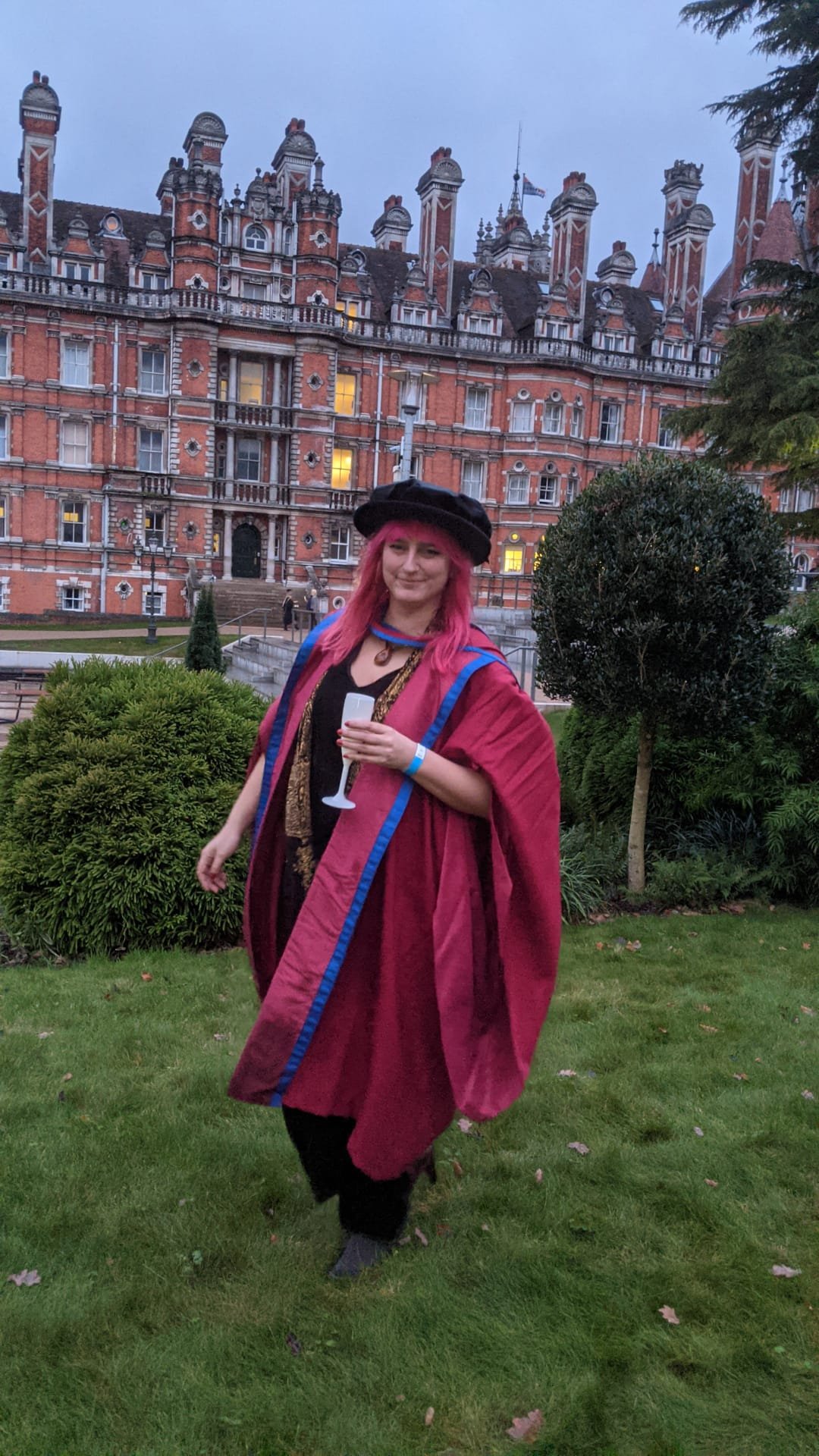On Monday 13 December 2021 Dr. Amber Macintyre enjoyed our graduation ceremony. It was in the slightly more quiet atmosphere that Covid has brought to ceremonies, but still a chance to celebrate. In her PhD Amber used ethnographic research to explore how campaign organisations Amnesty International and Tactical Tech follow what Amber calls 'data logic' despite their openly critical stance on the use of big data. Amber's thesis was examined by Dr. Alison Powell (LSE) and Prof. Karin Wahl-Jorgensen (Cardiff). Her supervisors were Ursula Hackett, Ben O’Loughlin, and Cristian Vaccari. Please find her abstract below.
This research examines common claims about how personal data is used in political communication, focusing on civil society organisations (CSOs). Two ethnographic case studies are carried out to investigate the differences between an older membership-run CSO, Amnesty International, and a younger grant-funded CSO, Tactical Technology. The findings are threefold. Firstly, the claims of new civil society organisations, such as Avaaz, 38 Degrees and Change.org, assert that data-driven technologies support their efforts to decentralise strategy-setting power from their staff to their audience. However, both organisations engage in data practices to persuade the audience to support the strategy set by organisational staff, corroborating the critical claims that data practices centralise power.Secondly, rhetoric around the uptake of new data practices has been based on the assumption that distinct data-driven ways of working have become normalised. The findings show, however, that these two CSOs still rely on face to face discussions, intuition, and relationships to make strategic decisions. Finally, decision making surrounding data practices can be influenced by the opaque role of agents such as data scientists or algorithms. The technology-era organisation was more likely to understand how to involve these agents in decision making processes than the older organisation, which affected their ability to manage personal data. The research is significant in understanding the complexity and nuance in the adoption of new data practices. Further, the research makes a case for practitioners and researchers alike to be cautious about claims that data practices can support the decentralisation of strategy-setting power.

